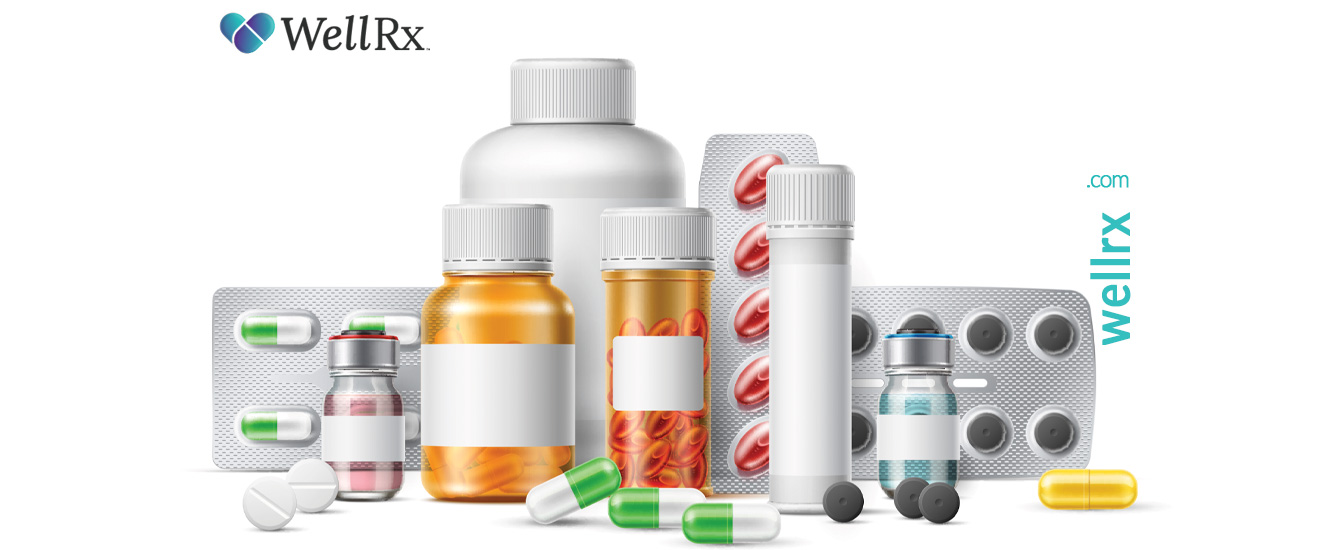High cholesterol is extremely common. Nearly 40% of adults have high cholesterol in the United States. Cholesterol is made in the liver and consumed in the diet. In the diet, cholesterol is found in foods such as meat, seafood, poultry, eggs, and dairy.
Types of cholesterol
Three types of cholesterol are routinely measured when you get your cholesterol checked. These are reported as four separate numbers in the report:
- Low-density lipoprotein (LDL) – Commonly referred to as “bad” cholesterol, LDL buildup in your arteries increases your risk of heart attack and stroke.
- High-density lipoprotein (HDL) – Commonly referred to as “good” cholesterol, high HDL levels decrease the risk of heart attack and stroke.
- Triglycerides – Used for energy in the body, triglycerides can increase the risk of heart attack and stroke. Very high triglycerides also can cause pancreatitis (inflammation in the pancreas). This type of cholesterol is most influenced by blood sugars.
- Total cholesterol – Total cholesterol is the total amount of cholesterol in the blood and includes HDL, LDL, and triglycerides.
Other types of cholesterol are sometimes measured, but the above-mentioned types are the most commonly used.
How high is too high?
High cholesterol is defined as a total cholesterol above 200mg/dL. Ideal total cholesterol is less than 150mg/dL. HDL cholesterol would ideally be above 40mg/dL in men and 50mg/dL in women. LDL cholesterol would ideally be below 100mg/dL. Triglycerides are ideally less than 150mg/dL. Cholesterol can be too low. An LDL of less than 40 mg/dL can be associated with cancer, hemorrhagic stroke, depression, anxiety, and preterm birth or low birth weight.
High cholesterol can increase your risk of heart disease or stroke. It can also be associated with an increased risk of blockage in other arteries besides those in the heart and brain. Peripheral arterial disease (PAD) is another medical problem associated with high cholesterol.
Cholesterol should be checked every 4-6 years in healthy adults. It should be checked more often in people with risk factors such as heart disease, diabetes, or a family history of high cholesterol. Children should also be screened periodically with the frequency of screening depending on risk factors.
How is high cholesterol treated?
The first steps to treat high cholesterol involve diet and exercise. Several diets have been shown to reduce cholesterol, some of which are more restrictive than others. The Dean Ornish diet and the Mediterranean diet are two diets that have been shown to reduce the risk of cardiac events. Studies have also shown that exercise is beneficial for high cholesterol. Walking or jogging 10 miles per week has been shown to decrease LDL cholesterol by 15-20%.
If diet and exercise aren't enough to control your cholesterol, your healthcare professional may consider starting a medication to treat the high cholesterol. Many different medications can treat high cholesterol, but they generally fall into five different categories:
- Statins
- Bile acid sequestrants
- Niacin/nicotinic acid
- Fibrates
- Injectables
How do you know it’s time to start medication?
The United States Preventative Services Task Force recommends starting a statin medication for all adults who are age 40-75 with at least 1 cardiovascular risk factor and an estimated 10-year cardiovascular risk score of 10% or higher. If the score is 7.5%-10%, then they recommend offering a statin medication. Ten-year cardiovascular risk factors are calculated using the ASCVD risk estimator from the American College of Cardiology. Your healthcare provider can help you determine whether starting medication is appropriate for you.
Medications for high cholesterol
As mentioned previously, there are basically 5 classes of cholesterol medications. Each works differently and has different side effects.
Statins
The statin drugs work at the level of the liver to decrease LDL cholesterol production. They also increase the ability of the liver to remove LDL cholesterol from the blood. Statins are first-line medications and may decrease LDL cholesterol by 25-55%. Statin medications are generally well tolerated by most people, but some people experience muscle pain, aches, and weakness. In rare cases, it can affect the liver.
The current recommendations for statins in high cholesterol include starting maximally tolerated statin therapy for patients aged 20-75 with an LDL cholesterol of over 190. Moderate-intensity statins are recommended for all patients with diabetes aged 40-75 regardless of the 10-year ASCVD risk. Patients with moderate elevation in cholesterol who have an intermediate 10-year ASCVD risk should be started on moderate-intensity statin medications.
If you don’t tolerate statin medications because of side effects, your healthcare provider may recommend starting a different statin medication or possibly changing to another class of medications.
Bile acid sequestrants
Bile acid sequestrants are another class of medications used to treat cholesterol. They can be used alone or in combination with statin medications. Bile acid sequestrants work by removing bile acids from the bloodstream. The body then breaks down LDL cholesterol to create more bile acids. They can lower LDL cholesterol by 15-30%. Bile acid sequestrants are one of the few medications that can be used in children and adolescents as young as 10.
Side effects of bile acid sequestrants include stomach pain, bloating, constipation, vomiting, heartburn, loss of appetite, and indigestion. They may also worsen peptic ulcers and hemorrhoids. Bile acid sequestrants can potentially decrease the absorption of other medications and vitamins.
Niacin and nicotinic acid derivatives
Niacin is a type of B vitamin. Studies have shown that niacin and its derivative, nicotinic acid, can lower cholesterol in both diabetics and non-diabetics. Specifically, niacin seems to have a good effect on triglyceride concentrations as well as LDL and total cholesterol. Niacin can lower triglycerides by 25% and raise HDL cholesterol by 30%. Major side effects of niacin include flushing, diarrhea, vomiting, abdominal pain, headache, and fatigue.
Fibrates
Fibrates are another class of medications. They help lower LDL, total cholesterol, and triglycerides and can increase HDL levels. They can be used alone in combination with statin medications, especially for people with very high triglyceride levels. Triglycerides work by reversing cholesterol movement, decreasing the availability of the components of triglycerides, and breaking down the components of LDL cholesterol. Fibrates are recommended for use in combination with a lipid-lowering diet.
Side effects of the fibrates include elevated liver enzymes and decreased kidney function (without renal failure). Fibrates shouldn’t be used with statin medications because they can increase the risk of muscle breakdown.
Other medications
Ezetimibe is in a novel class of medications that reduce cholesterol absorption. It is indicated to decrease total cholesterol, LDL, and other forms of non-HDL cholesterol. It can be used alone or in combination with statins or fibrates. Ezetimibe is designed to decrease the absorption in the GI tract without increasing the excretion of bile acids or affecting the synthesis of cholesterol in the liver. Side effects of this medication include headache, runny nose, and sore throat. It can also cause body aches, back pain, chest pain, diarrhea, joint pain, fatigue, and weakness. Muscle breakdown can be seen when used in combination with statin medications, but this is extremely rare.
PCSK9 inhibitors are a new class of medications that were recently released to treat cholesterol. They work by lowering LDL cholesterol. These medications block the breakdown of LDL receptors in the liver. The breakdown of these receptors leads to an increase in the cholesterol levels in the blood. There is growing evidence that these medications will have long-term benefits on cardiovascular risk. PCSK9 inhibitors are monoclonal antibodies. They can be used alone or in combination with other cholesterol-lowering agents. They should be used in combination with a lipid-lowering diet. There are currently three medications approved in the United States in this class: alirocumab (Praluent), inclisiran (Leqvio), and evolocumab (Repatha). These medications are dosed by injection usually from a prefilled syringe. The most common side effects of this class of medications are pain at the injection site, but they can also cause flu-like symptoms such as fatigue, feeling cold, and back or muscle aches. Generally speaking, these medications are well tolerated and have a favorable side-effect profile.
Many cholesterol medications are available with different side effect profiles and different mechanisms of action. Your healthcare provider can help you determine which medication is best for you given your unique risk factors. If you have questions about cholesterol medications, your healthcare provider is a good place to start.
Save on medications
If your healthcare provider has diagnosed you with high cholesterol or any other health condition, you may be wondering how to save money on your medications. Consider using our WellRx prescription discount card. Some people save a little. Some people save a lot and prices vary across zip codes. Even pharmacies across the street from each other can have huge price differences! ScriptSave has been helping consumers save on their prescriptions for 25 years.
Dr. Foglesong Stabile is a board-certified Family Physician who enjoys full scope Family Medicine, including obstetrics, women’s health, and endoscopy, as well as caring for children and adults of all ages. She also teaches the family medicine clerkship for Pacific Northwest University of Health Sciences.
References:
https://www.cdc.gov/cholesterol/
https://www.cdc.gov/cholesterol/about.htm
https://www.mayoclinic.org/diseases-conditions/high-blood-cholesterol/expert-answers/cholesterol-level/faq-20057952
https://www.bmj.com/content/358/bmj.j4040/rr-0
https://www.aafp.org/pubs/afp/issues/2023/0200/uspstf-statin-use-cardiovascular-disease/jcr:content/root/aafp-article-primary-content-container/aafparticlemainpar/aafptables_content.enlarge.html
https://tools.acc.org/ascvd-risk-estimator-plus/#!/calculate/estimate/
https://www.cdc.gov/cholesterol/cholesterol_screening.htm
https://www.cdc.gov/cholesterol/treating_cholesterol.htm
https://www.uptodate.com/contents/high-cholesterol-and-lipid-treatment-options-beyond-the-basics/print
https://www.aafp.org/pubs/afp/issues/2019/0501/p589.html
https://www.ncbi.nlm.nih.gov/books/NBK549906/
https://www.ncbi.nlm.nih.gov/pmc/articles/PMC3858911/
https://www.mayoclinic.org/diseases-conditions/high-blood-cholesterol/in-depth/niacin/art-20046208
https://www.ncbi.nlm.nih.gov/books/NBK547756/
https://www.ncbi.nlm.nih.gov/books/NBK532879/
https://www.ncbi.nlm.nih.gov/pmc/articles/PMC6686613/#:~:text=PCSK9%20inhibitors%20are%20a%20new,)%20and%20evolocumab%20(Repatha).
https://www.ncbi.nlm.nih.gov/books/NBK448100/













 Store & manage your medication list
Store & manage your medication list Medication pricing updates
Medication pricing updates Pill & refill reminders
Pill & refill reminders Medication journal & mood log
Medication journal & mood log